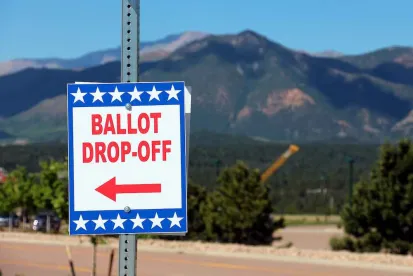The idea that individuals with a felony conviction should be barred from voting for at least some period of time is widely accepted across the United States. But when you consider that current laws arose out of explicit racial animus following the Civil War and the end of slavery; when you look at the disproportionate effect the practice has had on people of color; and when you weigh the arguments in favor of disenfranchising millions of Americans – it becomes apparent that states should revisit this issue as part of broader criminal justice reform efforts and broader calls to address systemic racism.
Currently, over five million Americans who otherwise qualify to vote cannot do so as the result of a felony conviction.
Whether and to what extent a conviction affects a person’s right to vote depends on state law, which varies widely. In the District of Columbia, Maine, and Vermont, there is no such restriction. Every other state, however, maintains some degree of restriction. For some states, the prohibition is lifted after release from prison. For other states, it lasts for a defined period of time following incarceration, such as during probation or parole. In 11 states, voting rights are lost indefinitely for certain crimes or require some additional action after release from prison before they can be restored.
People of color are disproportionately disenfranchised as a result of these laws. According to The New York Times, the practice has “stripped one in every 13 black persons of the right to vote — a rate four times that of nonblacks nationally.” In seven states, Alabama, Florida, Kentucky, Mississippi, Tennessee, Virginia, and Wyoming – more than one in seven African-Americans is disenfranchised.
This practice has affected the outcome of elections. A study published in the American Sociological Review found that the practice changed the outcome of at least seven Senate races between 1970 and 1988 as well as the presidential election in 2000.
The original rationale for these laws, which expanded rapidly in the 1860s and 1870s, was based on racism. These laws were part of a broader effort, including poll taxes, literacy tests, and violence, to undo the constitutional guarantees provided to freed slaves, thereby reversing a brief period following the Civil War when African-Americans voted in large numbers in the South and held elected office. An example of the racial motives behind these laws is when Alabama amended its Constitution in 1901 to expand disenfranchisement based on prior convictions. The president of the constitutional convention at that time specified the effort was necessary to prevent the “menace of Negro domination.”
Non-race-based justifications for these laws are unfounded. There is no basis to conclude that people with felony convictions are more likely to engage in voter fraud; would undermine the country by somehow voting as a block in favor of lawlessness and crime; or have any less interest in the democratic process. The European Court of Human Rights decided in 2005 that such a blanket limitation on voting, far from being well-grounded, was a violation of human rights. Indeed, half of the countries in Europe enable people to vote from prison.
Some argue that depriving an individual who has been convicted of a felony the right to vote is simply an appropriate punitive measure. This raises broader questions – especially if the individual is permanently barred – about the punitive nature of the American criminal justice system, which has the highest incarceration rate in the world. As it is, a criminal conviction may impair a person’s ability to secure employment, education and housing, thereby making re-entry into society difficult and increasing the chance of recidivism. Depriving that person of the right to vote after they’ve completed their sentence may further impede their successful integration into society.
No matter how deeply rooted this practice may be, depriving individuals with a felony conviction of their fundamental right to vote – depending entirely on where they live and despite the disproportionate impact on racial minorities and the lack of any compelling justification – should no longer have a place in the American system of justice. Fortunately, conventional wisdom appears to be changing on this issue as criminal justice reform becomes more broadly accepted. Several states have reformed their felony voting laws and fewer people are disenfranchised today than four years ago.



 />i
/>i

